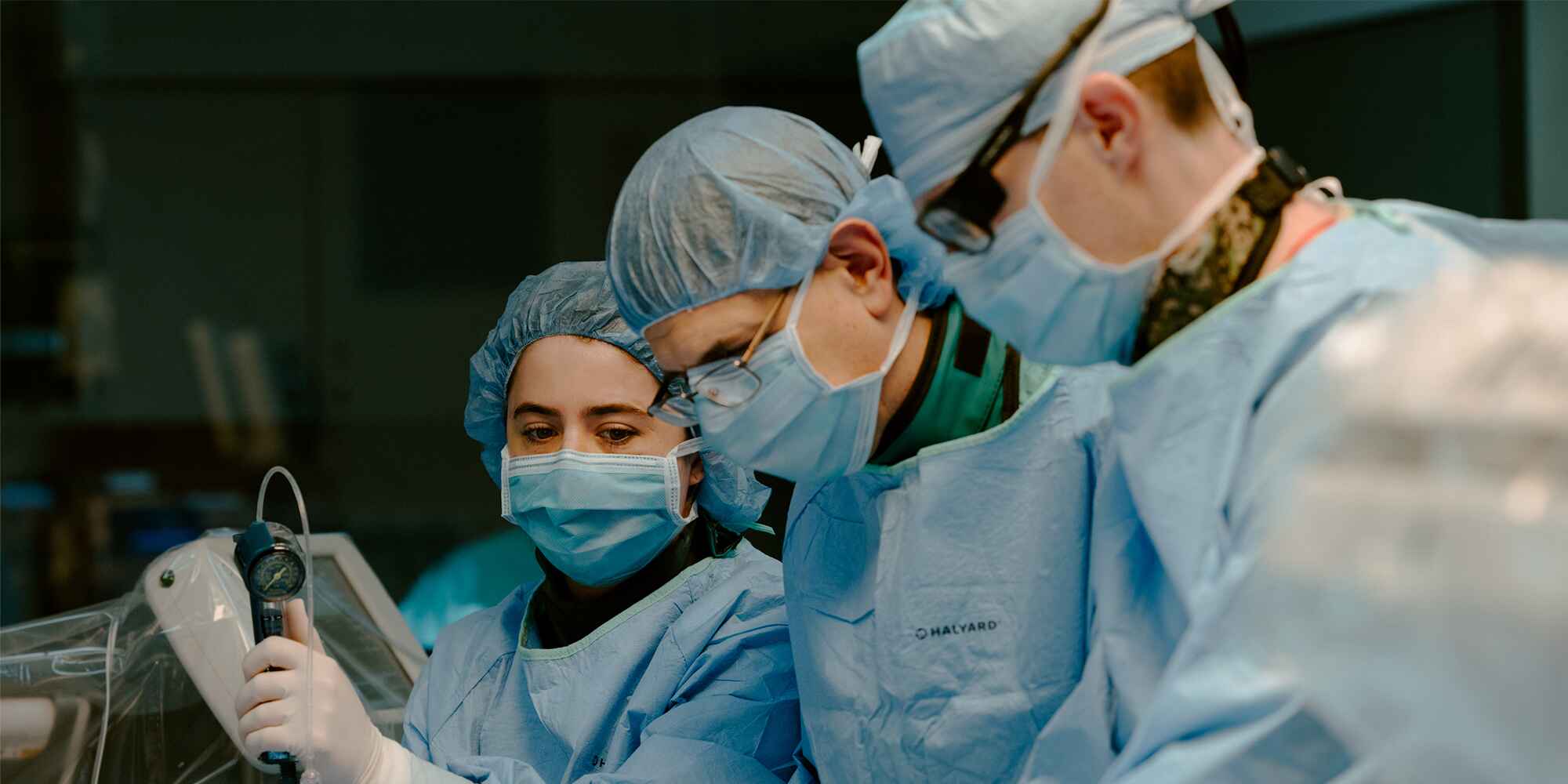Structural Heart Program
Structural heart disease is a group of conditions affecting the heart’s valves and other tissues. These issues can worsen over time, putting you at risk for heart failure and other complications. At St. Peter’s Health Partners, you are in caring and capable hands.
We develop lasting relationships with patients, making it easier to tailor treatments to your changing needs. If a procedure is necessary, you can take comfort in knowing we deliver leading therapies with a high success rate.
Why Choose St. Peter’s Health Partners for Structural Heart Disease Care?
St. Peter’s Health Partners is among the Capital Region’s few comprehensive structural heart disease programs. You have access to sophisticated tests and treatments from a team that cares about you as an individual. Meet our team.
Our Structural Heart Disease Program Includes:
- Expertise: St. Peter’s Health Partners is one of the few Capital Region programs with interventional cardiologists. These heart specialists completed rigorous training in minimally invasive heart disease therapies. Treatments typically use tiny instruments and real-time imaging for services that are gentler on your body.
- Quality: Patients undergoing valve disease procedures at St. Peter’s Hospital consistently achieve outstanding results. They are more likely to go home instead of to another facility and very few experience complications. This level of performance helps us maintain exceptional ratings from U.S. News & World Report and the Society for Thoracic Surgeons.
- Easy Access: If you experience a sudden change in symptoms or new ones, you won’t need to wait long for assistance. Our same-day heart clinic gives you access to structural heart disease specialists without an appointment. Find out more about our clinics.
- Ongoing Care: Structural heart disease often requires regular monitoring. At St. Peter’s Health Partners, these appointments often feel like visiting old friends. Some of our doctors and office staff have been with us for decades. And ongoing patient relationships include caring for multiple generations of the same family.
Types of Structural Heart Disease We Treat
Our team has experience treating common and complex structural heart issues, including:
- Abnormally Thick Heart Tissue (cardiomyopathy)
- Heart Valve Narrowing leading to stenosis and other complications
- Hole in the Aorta called patent ductus arteriosus (PDA)
- Holes in Heart Walls including atrial septal defect, ventricular septal defect, and patent foramen ovale
- Leaky Heart Valves (regurgitation) and other forms of heart valve disease
- Pulmonary Arteriovenous Malformation (AVM) a type of vascular disease in which there are abnormal connections between arteries and veins in the lungs
- Adult Congenital Heart Disease heart defects that are present at birth and require lifelong care
Personalized Structural Heart Disease Services
Your care starts with a comprehensive evaluation. Assessments often include one or more heart tests, many of which are available on site. This information helps us accurately diagnose the issue and tailor therapies to your needs. For mild symptoms, treatment may not be necessary. We may recommend lifestyle changes, like a heart-healthy diet.
Minimally Invasive Structural Heart Disease Treatments
For moderate to severe structural heart disease, a procedure may be necessary. We offer:
- Alcohol Septal Ablation applies an alcohol solution to thickened heart tissue in people with cardiomyopathy. We are one of the few programs in the region offering this option.
- Balloon Valvuloplasty uses a tiny balloon to widen narrow valve openings.
- Paravalvular Leak Closure treats leaks that occur after heart valve replacement.
- Pulmonary AVM Closure seals off abnormal connections between arteries and veins in the lungs. This treatment is not widely available in the Capital Region.
- Repair and Replacement Procedures fix or replace diseased heart valves. Find out more about heart valve repair and replacement.
- Transcatheter Aortic Valve Replacement (TAVR) uses thin tubes (catheters) with sophisticated instruments at the tip to replace diseased aortic valves. Get more information about TAVR.
- Transcatheter Mitral Valve Repair uses a tiny device called MitraClip®; that's inserted through a catheter to treat leaky mitral valves.

